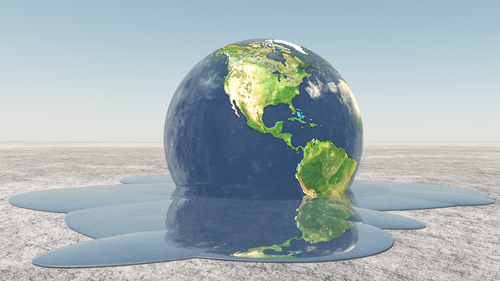Deadline: 06-Oct-21
European Commission is calling proposals for the Key Oceanic and Polar Processes Driving Regional & Global Climate Change.
Scope
- The Atlantic Meridional Overturning Circulation (AMOC) is a key component of the Earth climate.
- It can significantly imprint the vertical structure of global ocean heat uptake and drives a large part of the deep-ocean oxygenation and deep storage of anthropogenic carbon.
- The AMOC is expected to slow down with climate change with strong impact on the oceanic heat storage, carbon pump, and ventilation.
- Such change in the AMOC is also expected to impact the polar regions that are already experiencing warming at a faster rate than other places.
- Indeed, the current climate in polar regions is influenced by interactions between the ice sheets, the ocean, sea ice and atmosphere, and their response to anthropogenic climate forcing.
- Both the Arctic and Antarctic are connected to global climate through several feedback mechanisms, such as the AMOC, snow albedo effect, sea level rise from melting glaciers and ice sheets, changing terrestrial ecosystems that lead to changes in fluxes of carbon dioxide, and methane nutrients.
- Several of these processes exhibit tipping points (e.g. methane hydrate release in a warming Arctic Ocean, thawing permafrost and release of carbon).
- Potential tipping points in the Polar Regions include a significant slowdown of the AMOC and a destabilization of Greenland and Antarctica ice sheets.
Funding Information
Grant amount is equal to or greater than EUR 500 000 except for:
- public bodies (entities established as a public body under national law, including local, regional or national authorities) or international organisations; and
- cases where the individual requested grant amount is not more than EUR 60 000 (lowvalue grant).
Expected Outcomes
- In support to the European Green Deal and climate initiatives, and the EU Arctic Policy, successful proposals will contribute to strengthening the ocean – climate nexus and their understanding of the ocean and polar regions, as an integral part of the Earth’s climate system.
- Successful proposals will further the science for understanding key processes that link the ocean to climate and people.
- They will allow for a better understanding of the nature and magnitude of these processes, and the impact of human activity on them.
- Given their specific vulnerability to climate change, this knowledge may help formulate the appropriate policy action to better protect the ocean and the polar regions and help ensure their health, integrity and resilience.
- Project results are expected to contribute to all of the following expected outcomes:
- Increased predictability and reduced uncertainty associated with key oceanic and polar processes and advanced understanding and science of the ocean-climate nexus.
- Contribution to the next generation observation and modelling of key ocean-climate processes and indicators.
- Contribution to the implementation of the EU Arctic Policy, the All-Atlantic Ocean Research Alliance, the European Commission-European Space Agency flagship action on polar changes & global impacts, European climate policies and a substantial contribution to key international assessments, such as the Intergovernmental Panel on Climate Change (IPCC), Intergovernmental Science-Policy Platform on Biodiversity and ecosystem services (IPBES), World Ocean Assessment (WOA) and other major regional and global initiatives.
Eligibility Criteria
- Any legal entity, regardless of its place of establishment, including legal entities from non-associated third countries or international organisations (including international European research organisations) is eligible to participate (whether it is eligible for funding or not), provided that the conditions laid down in the Horizon Europe Regulation have been met, along with any other conditions laid down in the specific call topic.
- A ‘legal entity’ means any natural or legal person created and recognised as such under national law, EU law or international law, which has legal personality and which may, acting in its own name, exercise rights and be subject to obligations, or an entity without legal personality.
- To be eligible for funding, applicants must be established in one of the eligible countries, i.e:
- the Member States of the European Union, including their outermost regions;
- the Overseas Countries and Territories (OCTs) linked to the Member States;
- eligible non-EU countries:
- countries associated to Horizon Europe
- low- and middle-income countries
For more information, visit https://bit.ly/3xmEhH9
